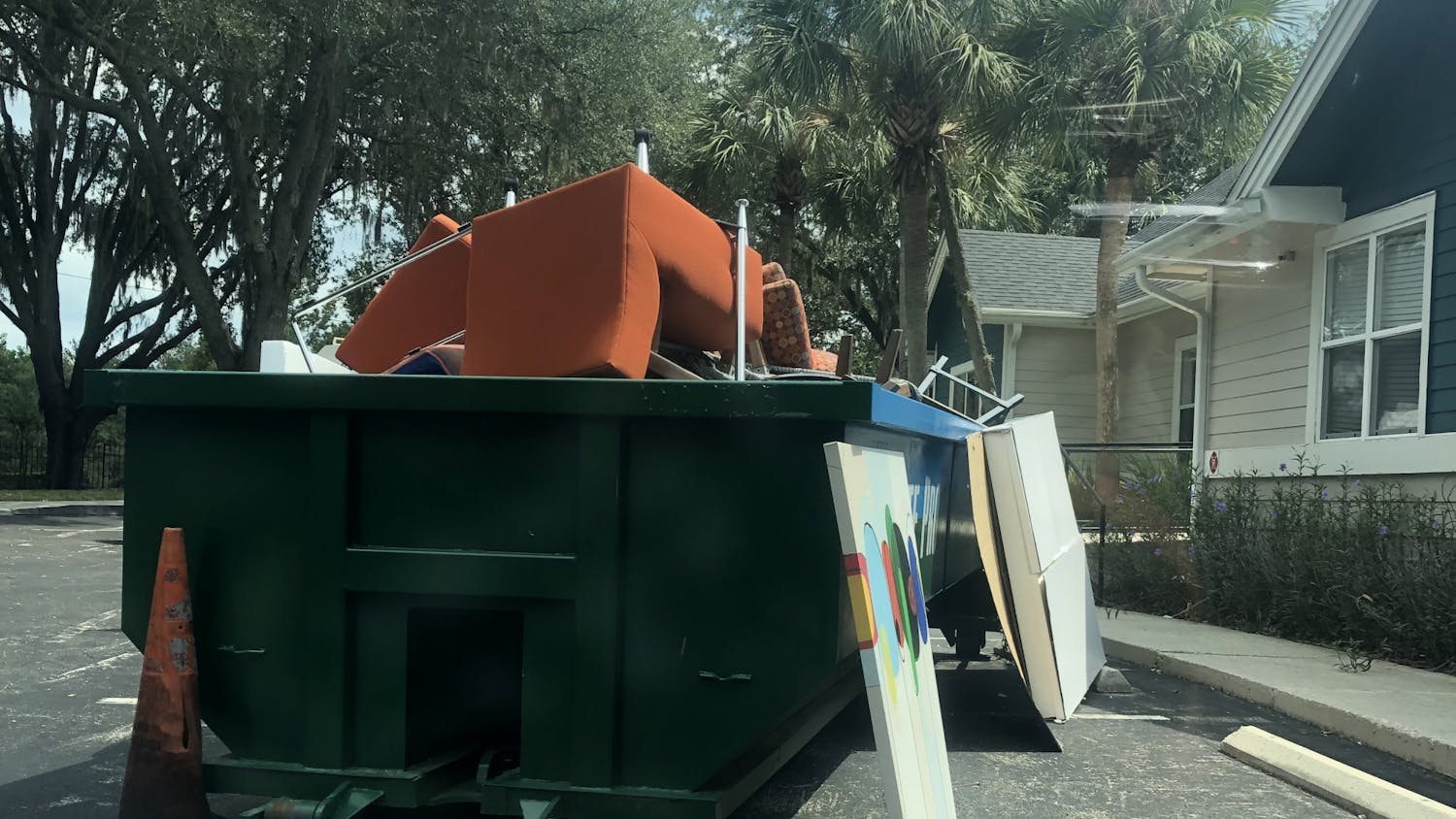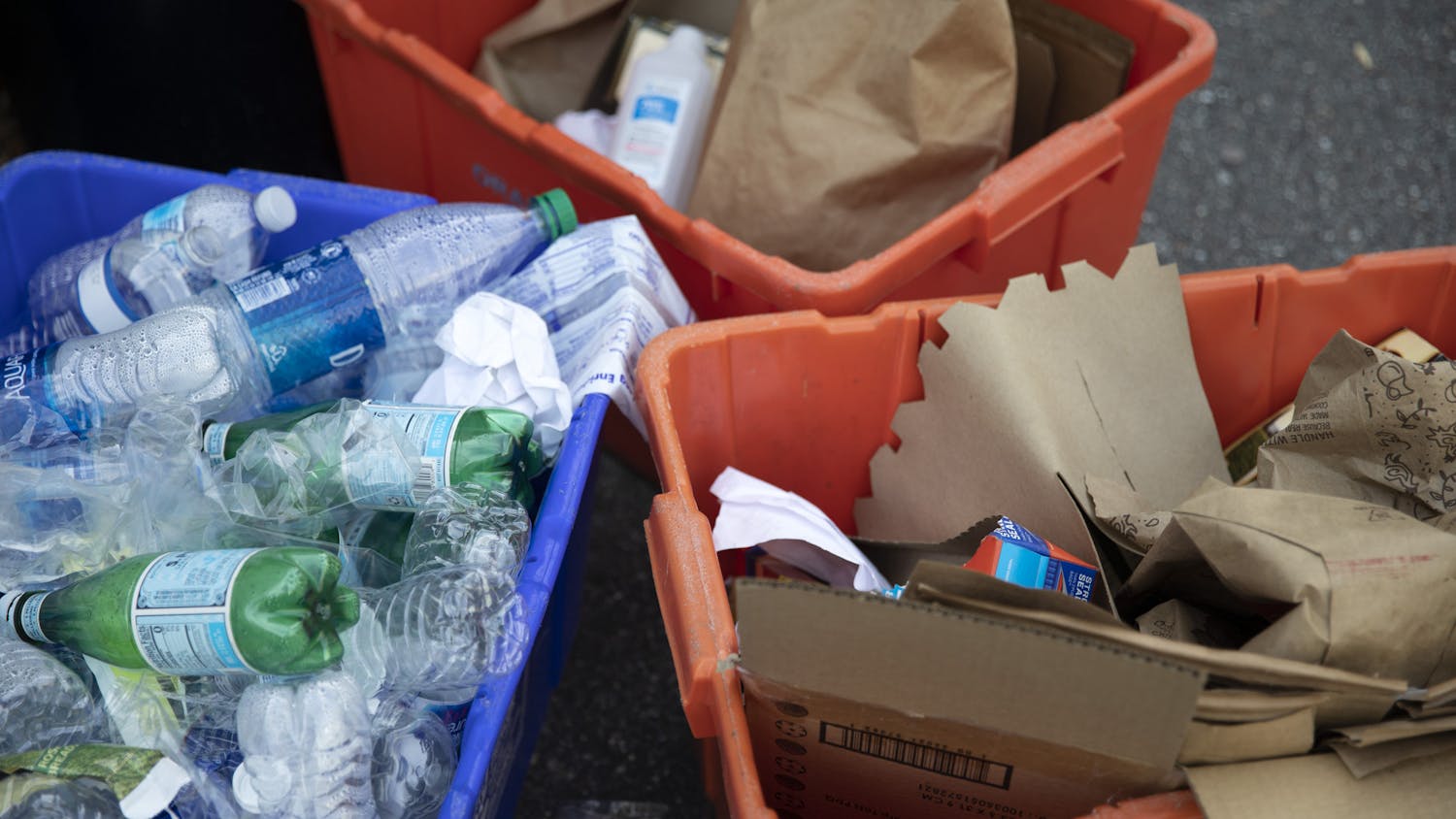Sometime in elementary school or one summer day while visiting a zoo and being shown a cute and cuddly endangered animal, children have been taught how they can do their part to save the environment for the past two decades. All they have to do is throw trash in the correct containers. Unfortunately, it seems many forget this important lesson somewhere down the road.
Conventional wisdom supports the idea that bottles must be uncapped and rinsed to be recycled. While the former holds, the latter does not. Rinsing recyclables is justified for plastic containers that once held food, but most plastic bottles are used for low-viscosity liquids. Plastic bottles are rinsed during the recycling process once they reach a material recovery facility, so chugging down that last bit of soda or dumping those last few swigs — aside from being no good for human health those unlucky bushes — is unnecessary.
On the other hand, there is actual science behind removing caps from plastic bottles. As Sierra Magazine’s lifestyle editor Josie Garthwaite explained in a special edition of NPR, caps need to be taken off plastic bottles because they’re made of polypropylene, while the bottles themselves are usually made of polyethylene terephthalate. The two cannot be recycled together due to chemical differences in the plastics, including their melting points. Yes, those small caps create large problems when recycling plastic bottles.
However, many students don’t take time out of their days to ponder the ins and outs of recycling, simply throwing their empty and uncapped bottles into the recycling bin without wondering what happens. Come to think of it, a considerable number of students don’t even recycle plastic bottles, let alone take the time to uncap them.
This is because many of us like to think recycling fairies take care of our garbage for the sake of humanity. But, in real life, the government takes the place of such fairies.
Because governments choose to balance budgets rather than take care of the environment, monitoring and expanding recycling takes a backseat to costs. How profitable recyclable goods are depends on their demand in private markets to use as building materials. The problem is: Pollution will take hold regardless of how we bicker about finances. Consequently, I believe state and municipal governments — as well as individuals — need to step up their recycling game.
Improving recycling processes could spark a paradigm shift in the way we imagine recycling. Gross, rancid trash could soon build and fuel American homes. For example, Terreform ONE (Open Network Ecology), a New York-based architecture firm, is looking to erect skyscrapers out of blocks of recycled trash. As the world also looks to solve an energy crisis, engineers are developing uses for garbage as energy sources through anaerobic digestion and modern incineration.
According to an article in Nature Magazine, global solid-waste generation will triple to 11 million tons per day by 2100. The U.S. produces a disproportionate share of the world’s garbage, even though, according to The Atlantic, around three-quarters of the material thrown in U.S. landfills could have been diverted.
If the future does not include a revamp of current recycling policies, it will likely include a world of barren wastelands instead. Sometime in the near future, the world will have accumulated so much trash we will be forced to worry about recycling beyond plastic bottles.
Although we cannot control the actions of others, we should all heed the lessons we learned in second grade: “We can all do our part by recycling.” The very least Americans can do is throw recyclables in recycle bins, especially when they are right next to regular trash bins.
Joshua Udvardy is a UF mechanical engineering freshman. His column usually appears on Wednesdays.





